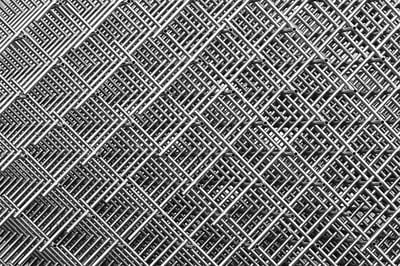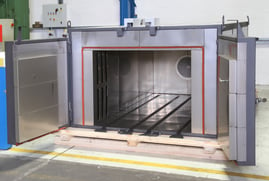What is Tempering?

Tempering is a heat treatment process that consists of reheating hardened steel to a temperature below the lower critical temperature in order to decrease its hardness, improve its toughness, and remove internal stresses caused by the rapid cooling of steel.
When is Tempering Used?
Tempering is used and necessary throughout many applications, and understanding when to use each method is important to guarantee desirable results for the metal.
- When carbon steel is heated and then quenched rapidly, it becomes hard and brittle and tempering helps to restore its ductility.
- During the process of welding, metals end up having localized zones that are hardened because of the heat generated during the welding process- this can result in stress and hydrogen cracking. Tempering reduces the hardness and relieves the stress removing the unwanted mechanical properties.
- Processes like rolling, drilling, punching, and bending lead to hardened materials with residual stress, tempering helps to alleviate this hardness.
Behind the Process of Tempering
- Iron-based alloy such as steel is subjected to extreme heat
- Steel is rapidly cooled- this process is called quenching
- After cooling, metal is very hard, lacking ductility *tempering is required
- Cooled metal is slowly re-heated at a constant temperature to achieve a balance of ductility and hardness required for the application needed
*For best results, it is best to carry out the tempering process immediately after the steel has been quench-hardened. This helps to avoid brittleness caused by quenching.
Benefits of Tempering
One of the most common benefits of tempering is to improve its toughness and hardness, but this process has many more advantages:
- Tempering changes the physical properties of the material that help in other manufacturing steps like cold forging, welding and machining.
- Tempering makes the metal easier to weld or machine by relieving stress
- Increases strength while making the material more ductile and flexible
- Overcome brittleness and increase toughness
- Can increase magnetic and electrical properties of metals
3 Types of Tempering Process
Low Temperature: 100-200°C, internal stresses decrease brittleness and hardness is reduced.
Medium Temperature: 200-500°C, the hardness is decreased and there is an increase in toughness and ductility.
High Temperature: 500-700°C, hardness decreases and material becomes more machinable.
Common Application of Tempered Steel
- Constructing buildings and bridges
- Making gears
- Liners for chutes, dump trucks and trailers
- Building durable storage tanks
- Deflector plates
Tempering Ovens for Sale/Tempering Furnaces for Sale
Riley Surface World has a range of ovens and furnaces that are suitable for tempering steel right across the temperature range. Within our catalogue of industrial ovens (up to heart... 650°C) and industrial furnaces (650°C +) should be a heat treatment solution. Alternatively, for smaller parts and components, try our Lab/Bench Top Ovens or Bench Top Furnaces.
SNOL Custom Build Furnaces & Ovens
Custom built ovens and furnaces to meet your project requirements and standards.
- Stock No
- NEW079
- Category
- Industrial Ovens
- Model
- SNOL
- Condition
- Brand New
- Availability:
- Available subject to build time
- Price [?]
- Please call on +44 (0) 1922 45 8000
Machines & equipment for sale
- Surface Treatment
- Cleaning & Degreasing
- Polishing & Belt Linishing
- Mass Finishing
- Ovens & Furnaces
- Process Cooling
- Shot Blasting
- Dust & Fume Extraction
- Air Compressors
- Rectifiers & Transformers
- Miscellaneous
- Latest Stock
- Special Offers
- Direct From Site Clearances
- Auctions
- Brand New Machines
- Available Immediately
- Sell Your Machine
Machine Alert
Get the latest machines emailed directly to you as they become available to buy online. Sign Up Now



